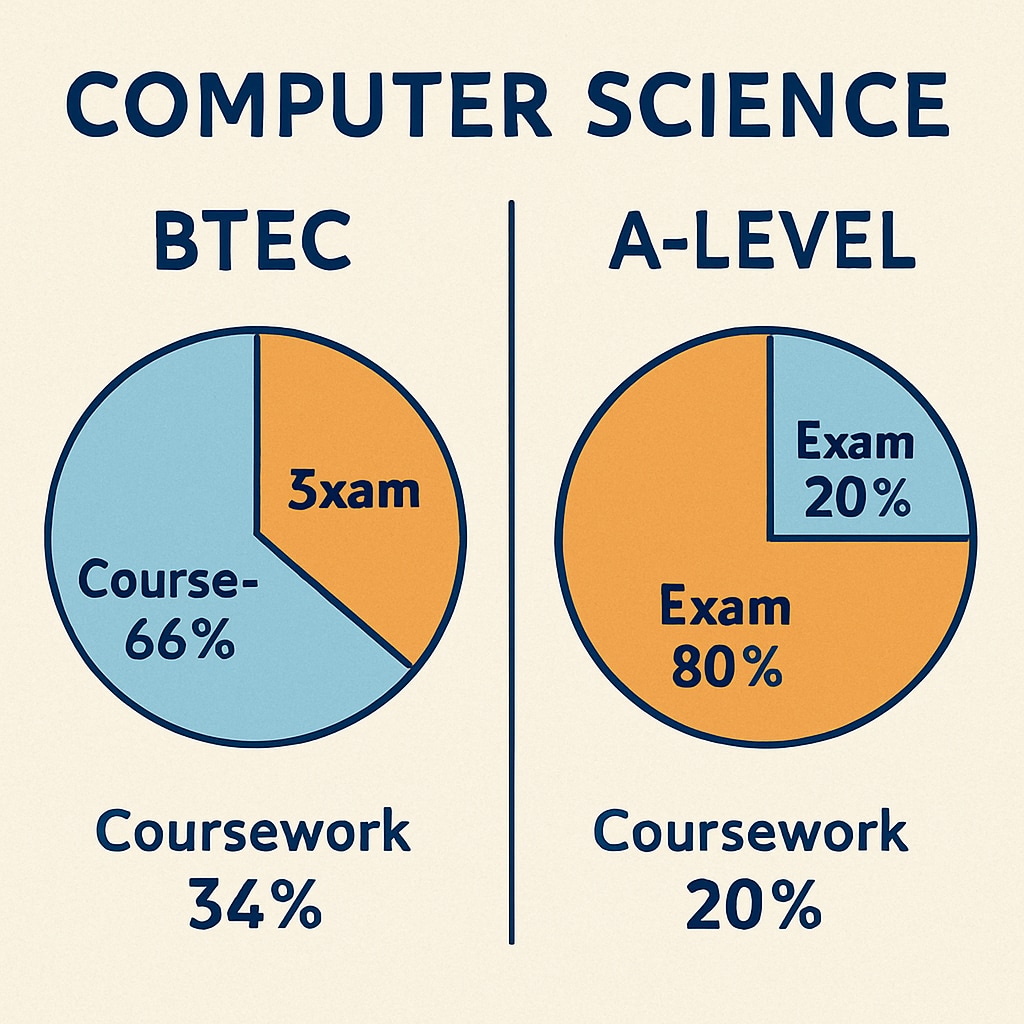When preparing for university applications in computer science, students often face the crucial decision between BTEC (Business and Technology Education Council) qualifications and traditional A-levels. Both BTEC Level 3 in computing and A-level computer science can lead to prestigious universities, but they differ significantly in structure and assessment methods. This comprehensive guide examines their competitiveness in higher education admissions while providing actionable strategies to maximize your application success.
Understanding the Fundamental Differences
The BTEC computing pathway offers a vocational approach with continuous coursework assessment, while A-levels maintain an academic focus with final examinations. According to the Office of Qualifications and Examinations Regulation (Ofqual), BTEC qualifications are equivalent in level to A-levels but emphasize practical skills development.
- BTEC Structure: 100% coursework with real-world projects
- A-level Structure: 80% exam-based with theoretical focus
- Duration: Both typically take 2 years for full completion

University Recognition and Acceptance Rates
Russell Group universities have traditionally favored A-levels, but as noted by the Russell Group, many now accept BTECs for computer science programs. Cambridge and Oxford remain exceptions, requiring A-level mathematics alongside computer science for most applicants.
For non-Russell Group institutions, BTEC computing students often enjoy equal consideration. Many universities value the practical experience BTEC candidates bring, particularly for applied computing degrees.
Strategic Advantages for Each Pathway
BTEC students develop industry-ready skills through:
- Extended project work mirroring professional practice
- Specialist units like cybersecurity and network systems
- Work experience components integrated into coursework
A-level candidates benefit from:
- Deep theoretical understanding of algorithms and programming
- Strong mathematical foundations for AI/machine learning paths
- Traditional assessment format familiar to top universities

Enhancing Your Application Profile
Regardless of qualification choice, these strategies strengthen computer science applications:
- Programming portfolio: Showcase GitHub projects demonstrating coding skills
- Competitions: Participate in Bebras Challenge or UK Bebras
- Online courses: Complete relevant MOOCs from edX or Coursera
- Work experience: Secure tech internships or shadowing opportunities
Remember that university admissions tutors increasingly value practical demonstration of skills. A BTEC student with an impressive software project or an A-level candidate with competition achievements can both stand out in the competitive STEM admissions process.


